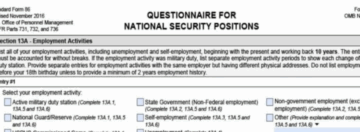The Way to vs the Way Not to Address Financial Delinquencies

For some, life events happen, they get down on their luck, and they eventually fall into the hole financially. Adjudicators and appeals judges are fully aware of this and take these factors into consideration when determining whether to grant clearance eligibility. You don’t need to pay all of the debt off, you just need to act responsibly and make a plan. Here is the tale of two clearance applicants who took different paths down the same road, with an opposite outcome.
Applicant #1 incurred $29,000 in college loan debts and was unable to start paying on them. He blamed the delinquencies on the high cost of living and his low wages while working in the food service industry. He then found himself unemployed during COVID. While unemployed for almost two years, he took a couple of trips abroad to see family and friends. He claimed to have started working with a debt relief company but could not provide any proof he had done so. The balance of his loans has remained the same since they went delinquent in 2016. Security clearance eligibility was denied.
Applicant #2 left the military in 2018 and could only find work for minimal income, so he ended up using credit cards for daily living expenses and ran up $32,000 in debt that he could not pay on. When he got his current job as a DoD contractor, he started paying off all of his other debts first, then made a plan to lower his livings costs and set up payment plans on the delinquent credit cards. This applicant followed through on starting the payments. He provided proof of his income to debt ratio and payments made. Although the applicant still had delinquent debts, he acted responsibly and took actions that will allow him to eventually resolve them. Security clearance eligibility was granted.



Start the discussion